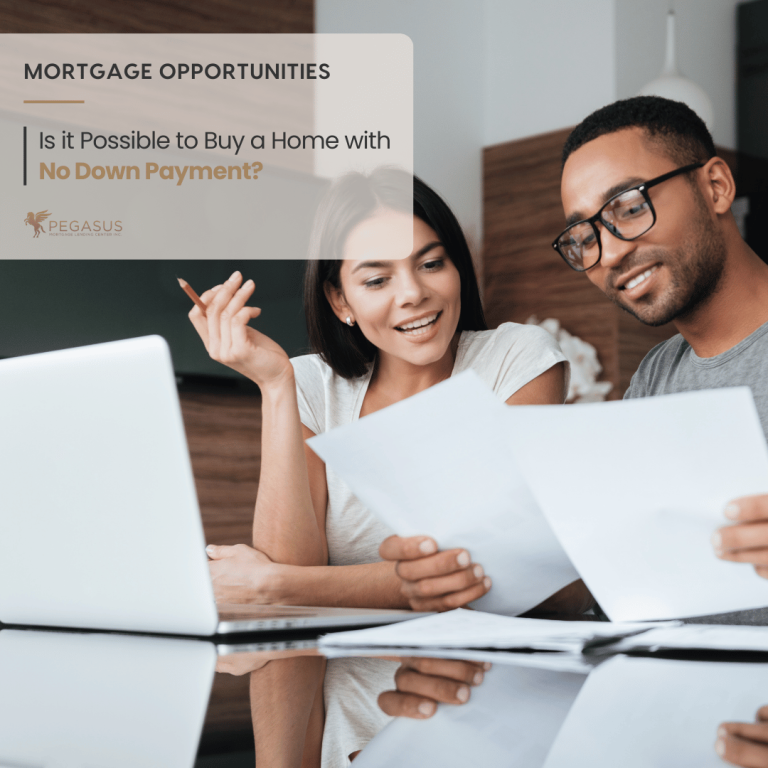Before the 2008 financial crisis, lenders offered zero down payment mortgages to borrowers more readily.
However, in the aftermath of the crisis and with the implementation of stricter regulations, especially in the realm of mortgages, policymakers began to mandate that borrowers provide a down payment as part of their mortgage purchase. But here’s the good news: There’s still a way for you to secure a zero down payment mortgage, which involves a concept known as “flex down.” The process of flex down typically starts with your mortgage lender, who can guide you through the necessary steps. The down payment is treated as a separate payment from your mortgage, giving you the flexibility to enter the housing market without a substantial upfront payment. While flex-down mortgages can offer greater accessibility to homeownership, it’s essential to understand that this approach may involve specific eligibility requirements and could affect your overall loan terms, such as interest rates and mortgage insurance. As a result, it’s essential to carefully review and assess this choice with your lender to ensure it fits your financial condition and long-term objectives.
Factors to consider before deciding on a zero downpayment mortgage
Before deciding whether to pursue a zero down payment mortgage, consider the following:
- Your Financial Situation: Assess your income, credit score, and financial stability. A zero down payment mortgage may be riskier for borrowers with lower incomes or credit issues.
- Long-Term Plans: Think about how long you plan to stay in the home. If it’s a short-term purchase, the risks associated with zero down payment financing might be more manageable.
- Alternative Financing Options: Explore other mortgage programs that may require a smaller down payment or consider waiting until you can save for a more substantial down payment, which can improve your loan terms.
- Consult with Professionals: Seek advice from a mortgage advisor, financial planner, or real estate expert who can provide personalized suggestions based on your situation.
Reasons behind choosing a zero down payment mortgage:
There are numerous valid reasons why individuals might need the necessary down payment to embark on the homeownership journey. Life, as we know, is riddled with unexpected twists and turns, some of which can significantly impact our financial footing. Let’s delve into the most common reasons:
- Unforeseen Life Events: Life can throw surprises in the form of unforeseen events like divorce, sudden job loss, or legal challenges. These unexpected disruptions can abruptly change one’s financial trajectory, making allocating funds difficult toward a down payment.
- Lack of Financial Education: Financial literacy is an essential aspect of wealth management, and the absence of it can lead to poor savings habits. Individuals may need a solid budgeting financial plan to accumulate a down payment.
- Family and Financial Responsibilities: Commitments to family and financial responsibilities can drain available funds. Whether supporting dependents, caring for aging parents, or investing in a child’s education, these obligations can limit the resources allocated for a down payment.
- Credit History: A degraded credit history can impact one’s ability to access favourable loan terms. Lenders may require higher interest rates from individuals with poor credit scores, further complicating the home acquisition process.
Market Timing: The timing of one’s entry into the housing market plays a significant role. When home prices peak, prospective buyers may need a more substantial down payment than initially budgeted.
Disadvantages and Considerations:
Higher Monthly Payments: With no down payment, you’ll typically have a larger loan amount, which results in higher monthly mortgage payments. This can strain your monthly budget.
Private Mortgage Insurance (PMI): Many zero-down payment mortgages require you to pay for private mortgage insurance, increasing your monthly expenses until you build sufficient equity in the home.
Risk of Being Underwater: If the property’s value declines, you could owe more on your mortgage than the home is worth, making it challenging to sell or refinance.
Limited Loan Options: Zero down payment mortgages are only sometimes available or may have stricter eligibility requirements. You may need to qualify for specific lender criteria.
Potential for Higher Interest Rates: Lenders may charge higher interest rates for zero down payment loans to compensate for the increased risk.
Longer Time to Build Equity: With a zero initial investment in the home, building significant equity in the property will take longer.
Overall Costs: Over the life of the loan, you may end up paying more cash due to the larger loan amount and higher interest rates.
The Bottom Line
The answer to the question “Is it possible to buy a home with no down payment?” is a resounding “Yes, it’s possible!” While the financial landscape may have shifted over the years, innovative mortgage options and government-backed programs have made homeownership dreams more achievable than ever. But remember, with great opportunity comes responsibility. Thoroughly explore your options, understand the requirements, and plan wisely. Your journey to homeownership may be a no-down payment adventure, but it’s still an adventure that requires careful navigation.


